19 players on fast track from U18 Asian Championship 2018 to Asia Cup debut in 2022
TEHRAN (Iran) - Let’s take a quick look back at some of the young guns from 2018 that have already made the leap to making their Asia Cup debuts recently in Jakarta!
TEHRAN (Iran) - The FIBA U18 Asian Championship is set to return in a couple of days and it’s been a while. To be exact, the last edition of the competition was back in 2018 where the tournament was held in Thailand.
There were some exceptional talents on display in Thailand 4 years ago. Before we get the chance to get a glimpse at the future from this year’s batch of prospects, let’s take a quick look back at some of the young guns from 2018 that have already made the leap to making their Asia Cup debuts recently in Jakarta!
Make sure to tune in to the U18 Asian Championship 2022 to get a first glimpse of tomorrow's Asia basketball stars before they make their Asia Cup debut... maybe as soon as Asia Cup 2025?
Samson Froling (Australia)
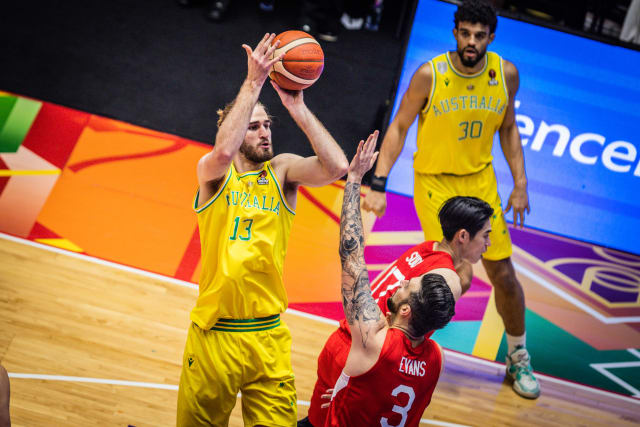
It doesn’t get much better than this right?
Froling won the U18 Asian Championship 2018 as a key part of the squad averaging 14.2 points, 9.0 rebounds, and 2.0 blocks per game. Four years later, Froling is winning again as the key big man for the Boomers with averages of 10.2 points and 6.0 rebounds per contest.
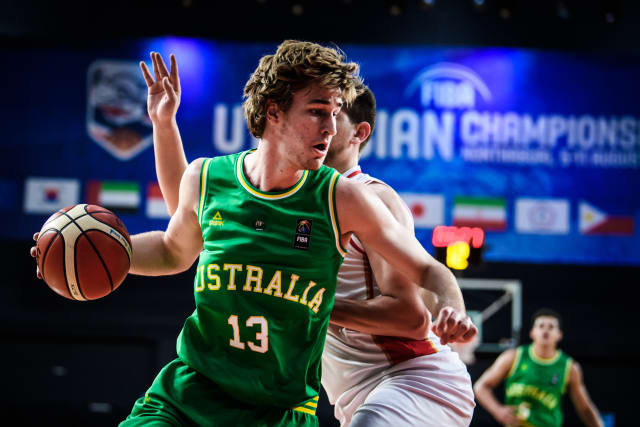
Winners win.
Flynn Cameron (New Zealand)
Maxwell Darling (New Zealand)
Kruz Perrott-Hunt (New Zealand)
Sam Mennenga (New Zealand)
If it felt familiar watching New Zealand at the U18 Asian Championship 2018 and Asia Cup 2022, that wasn’t a coincidence. Three of the top players on that Junior Tall Blacks team that went to the Final were once again the key players for the Tall Blacks at the Asia Cup that was one win away from the Final and ended up with a historic bronze medal.
It was a bit of a shame that Maxwell Darling suffered an injury early in the competition in Jakarta, but what the fans saw from Cameron, Perrott-Hunt and Mennenga (who also had an injury that kept him out of the later games) should assure a bright future for New Zealand.
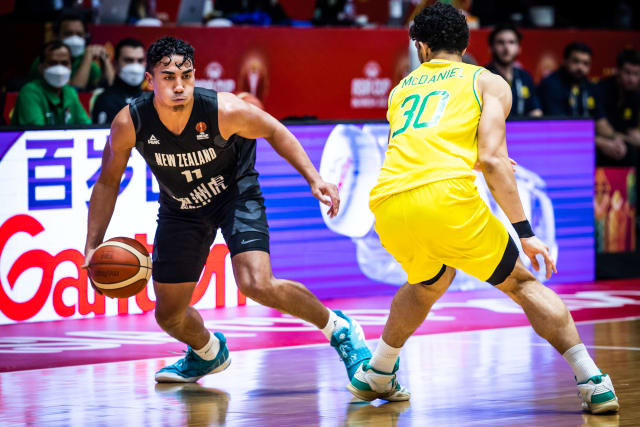
Cameron, in particular, generated quite a buzz just as he did at the U18 tournament. In Thailand, he recorded a rare triple-double (19 points, 10 rebounds, 12 assists against China) to earn a trip to the Final. In Indonesia, he was close to another triple-double (22 points, 9 rebounds, 8 assists against Korea) on the way to a Semi-Finals berth.
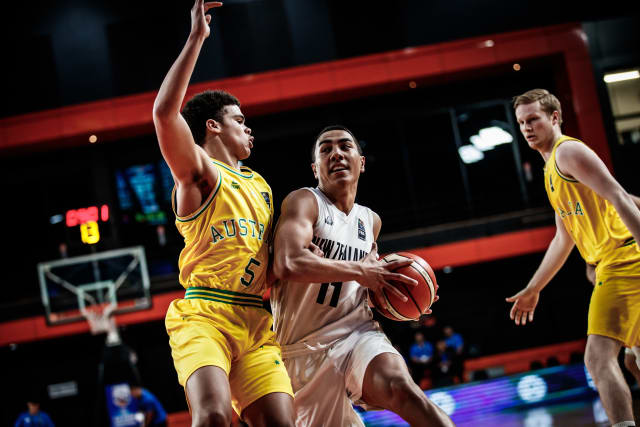
Xu Jie (China)
Jiang Weize (China)
China’s two-guard combo of Xu and Jiang weren’t the main offensive firepower during the U18 tourney, but they were the first two of the bunch to make an Asia Cup appearance.
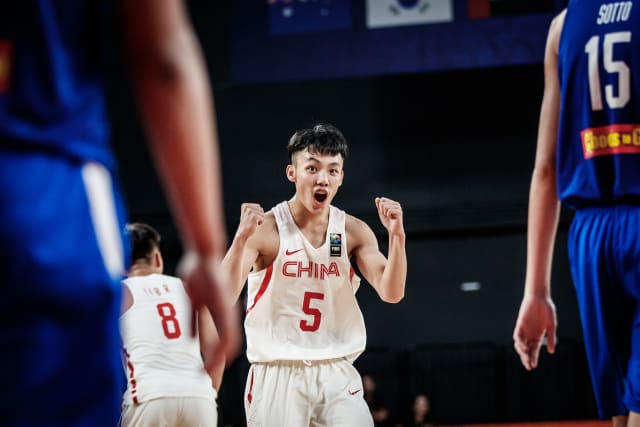
Xu was the starting guard or the U18 team and averaged a healthy 10.9 points, 3.9 rebounds, and 4.9 assists in over 30 minutes per game for China on their way to a bronze medal. He was thrusted into heavy minutes in his Asia Cup debut as well, ending up with 8.2 points on 50 percent shooting in 15.9 minutes per game.

Jiang Weize was featured a bit less in Thailand, playing 19.8 minutes and averaging 7.0 points per game. He was also a last minute addition to China’s Asia Cup squad, but proved to be a valuable addition with averages of 8.2 points in 15.0 minutes per game.
Geo Chiu (Philippines)

Chiu was behind both Kai Sotto and AJ Edu in the big man rotation, so he didn’t play as much in the U18 Asian Championship. However, he is the first among the three bigs to play in the Asia Cup for the Philippines.
At the Asia Cup, Chiu saw the court for an average of 10.3 minutes per game where he averaged 2.0 points and 2.5 rebounds per contest.
Keisei Tominaga (Japan)
Yuki Kawamura (Japan)
We all figured that Tominaga would be a spitfire sharpshooter and that Kawamura would be a tough as nails point guard at some point in their careers for the senior national team, but few expected that it would come as early as Asia Cup 2022.
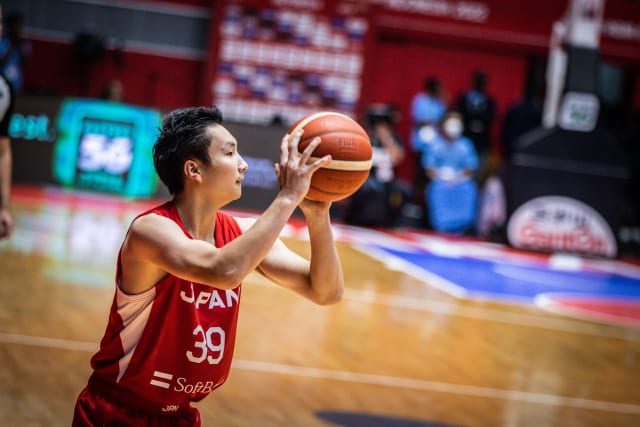
Tominaga went from averaging 19.3 points per game at the U18 level to 15.2 points per game in his first ever major tournament for Akatsuki Japan. Moreover, in both competition, Tominaga coincidentally had games where he went “Super Seiya” mode with 33 points. At the U18 tourney, he did it against Bahrain. At the Asia Cup, he did that against Australia.
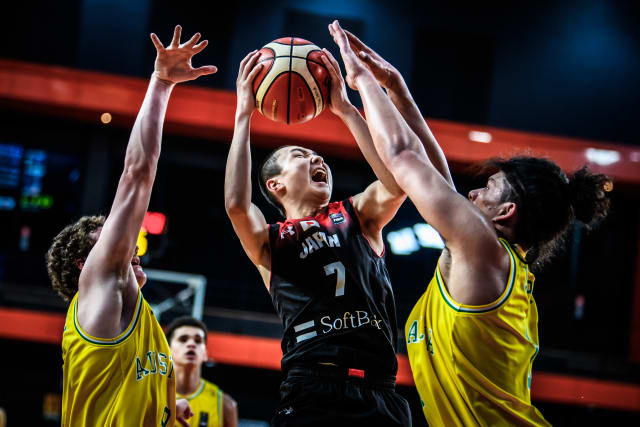
Kawamura didn’t have the volume of production as Tominaga did in his first Asia Cup, but he flashed a high-level of potential in his 11.7 minutes played per game with 4.4 points, 2.0 rebounds, 4.4 assists, and 2.0 steals per game. Fans can expect that with more experience, Kawamura would be able to produce something along his U18 averages of 10.7 points, 3.0 rebounds, 4.0 assists, and 2.1 steals per contest.
Matin Aghajanpour (Iran)
It’s never easy to crack into the rotation of team that has so many veteran stars like Iran. But nonetheless, Aghajanpour was able to earn 6.5 minutes per game of playing time in his first Asia Cup.
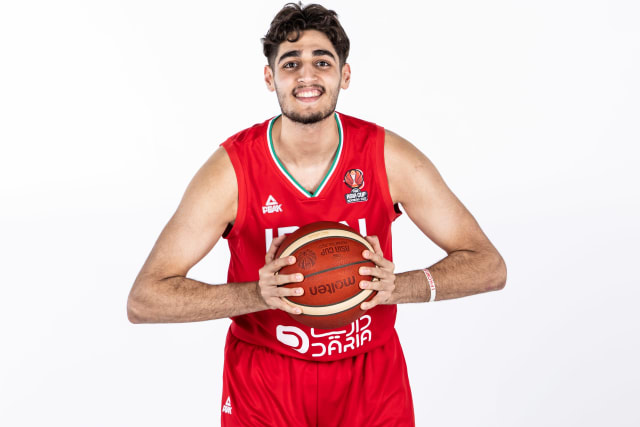
Aghajanpour starred for Iran at the U16 Asian Championship as the top scorer of the competition with 23.6 points per game and followed that up at the U18 Asian Championship with 9.7 points per contest. He’s been getting more and more opportunities with the senior national team ever since the World Cup Qualifiers and fans should expect to continue seeing him play for Team Melli in the future.

Ali Rashed (Bahrain)
Mustafa Rashed (Bahrain)
The Rashed brothers were on the historic Bahrain team that finished 7th in the U18 Asian Championship - their highest Final Standing ever in the history of the competition - and also made their Asia Cup debuts in 2022.
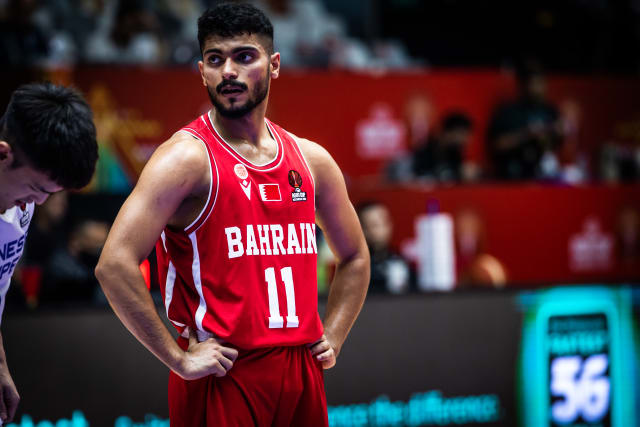
Mustafa was among the top three scorers in Thailand with 20.4 points per game (with two 33-point games) and was quick to make a presence in his Asia Cup debut with a solid 10.0 points per game average. He’ll have some work to do - as does his brother Ali - but it’s seems like a good start towards a bright senior national team future.

Yousef Khayat (Lebanon)
It’s a bit of a wild experience looking at Khayat’s resume so far in FIBA competitions and double-taking at the fact that he’s still only 19 years old.
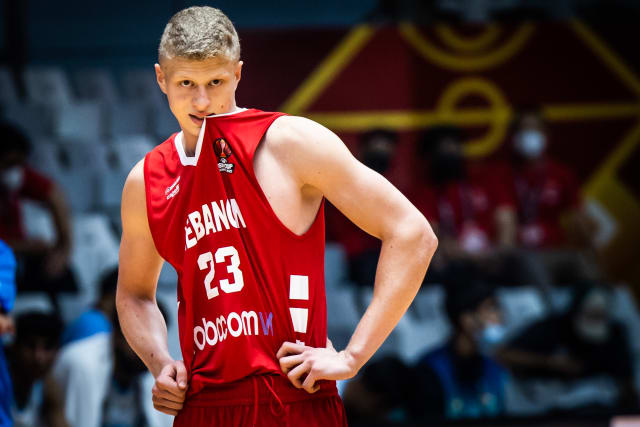
Look back at 2018 where he played in four competitions from the U18 WABA Qualifier to U16 Asian Championship to U16 WABA Qualifier to U18 Asian Championship, all in the span on just a few months and with some competitions nearly overlapping. More impressively, he shined in each of those tournaments which is why fans weren’t surprised when he quickly made the senior national teams from the Asia Cup Qualifiers to the Asia Cup itself.
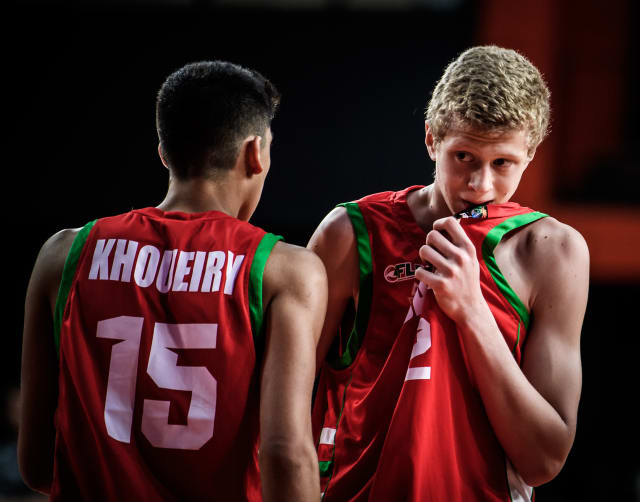
Khayat averaged 5.3 points and 2.0 rebounds per game for Lebanon in Jakarta, which might not seem like a lot… but again, he’s still only 19. Make sure to check back on his statistics at Asia Cup 2025.
Prashant Singh Rawat (India)
Arvind Kumar Muthu Krishnan (India)
Prospecting young talents is never easy. We’re guessing that few would have expected that out of India’s U18 Asian Championship 2018 squad, it would be Muthu Krishnan and Rawat to make their first Asia Cup appearances ahead of Princepal Singh, Rajeev Kumar, and Seijin Mathew.
While India’s stars from that U18 squad will most likely still have their chances in the future, Muthu Krishnan and Rawat will already have a head start with their debuts in Jakarta.
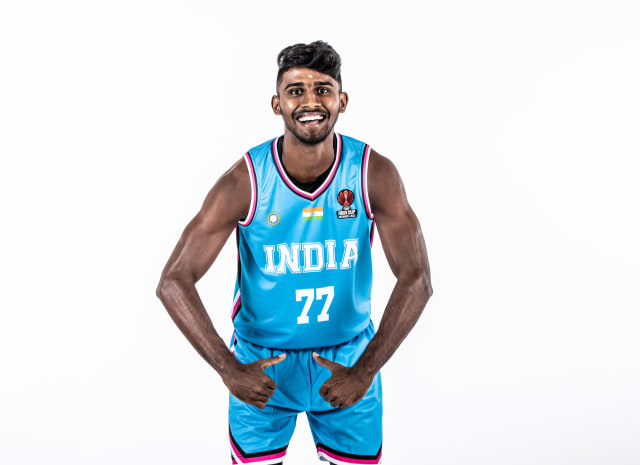
Muthu Krishnan was already a key contributor at the youth level with 18.1 minutes per game as the lead guard for India and he’s continued that trend at the senior level with 28.4 minutes per game at Asia Cup 2022, enough to average 8.0 points, 2.7 rebounds, and 2.0 assists per game.
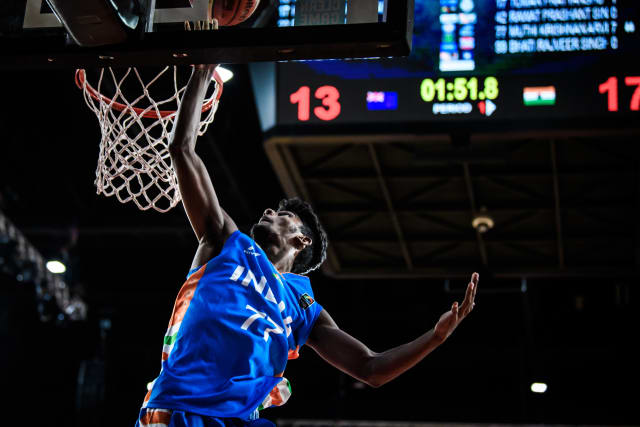
Meanwhie, Rawat’s emergence was a bit more harder to predict. The youngster played in only 2 games at the U18 tournament in Thailand and for only 3.7 minutes per game. At the senior level, he’s been one of India’s best rebounders, actually leading the team in that catergory at Asia Cup 2022 with 7.7 per contest.
Elias Arie (Syria)
Syria relied a lot on their veterans at Asia Cup 2022, which meant limited opportunities for a youngster like Elias Azrie. Still, it’s impressive that he was able to make the squad at such a young age.
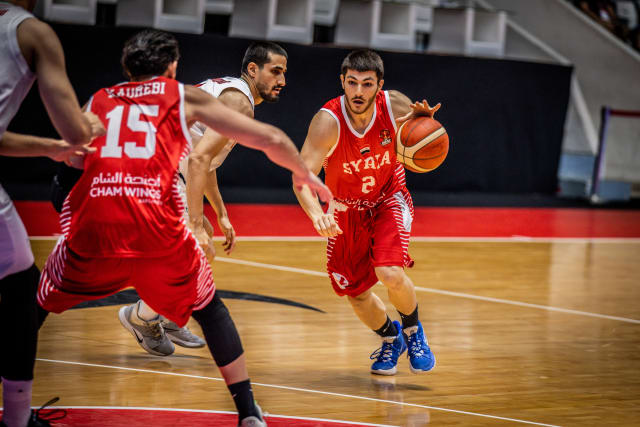
Azrie had a decent run of 8.7 points and 5.7 rebounds per game for Syria in Thailand, which is something Syria basketball fans might want to keep their eyes on to expect for the future.
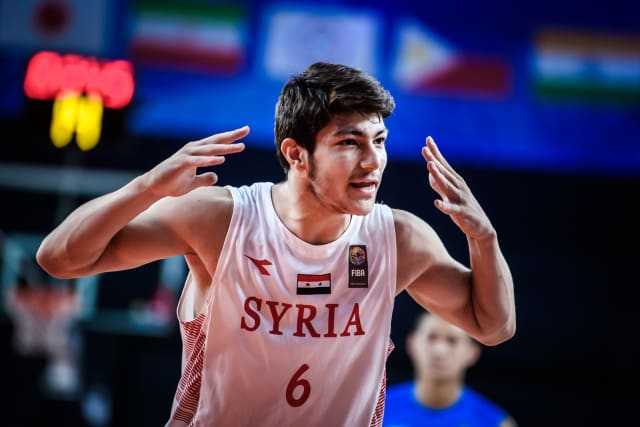
FIBA